Hamilton Beach Electric Stand Mixer – a budget-friendly option for easy bakes
It's more than three times cheaper than a KitchenAid Artisan, so we had to see if the Hamilton Beach Electric Stand Mixer stood up to the test
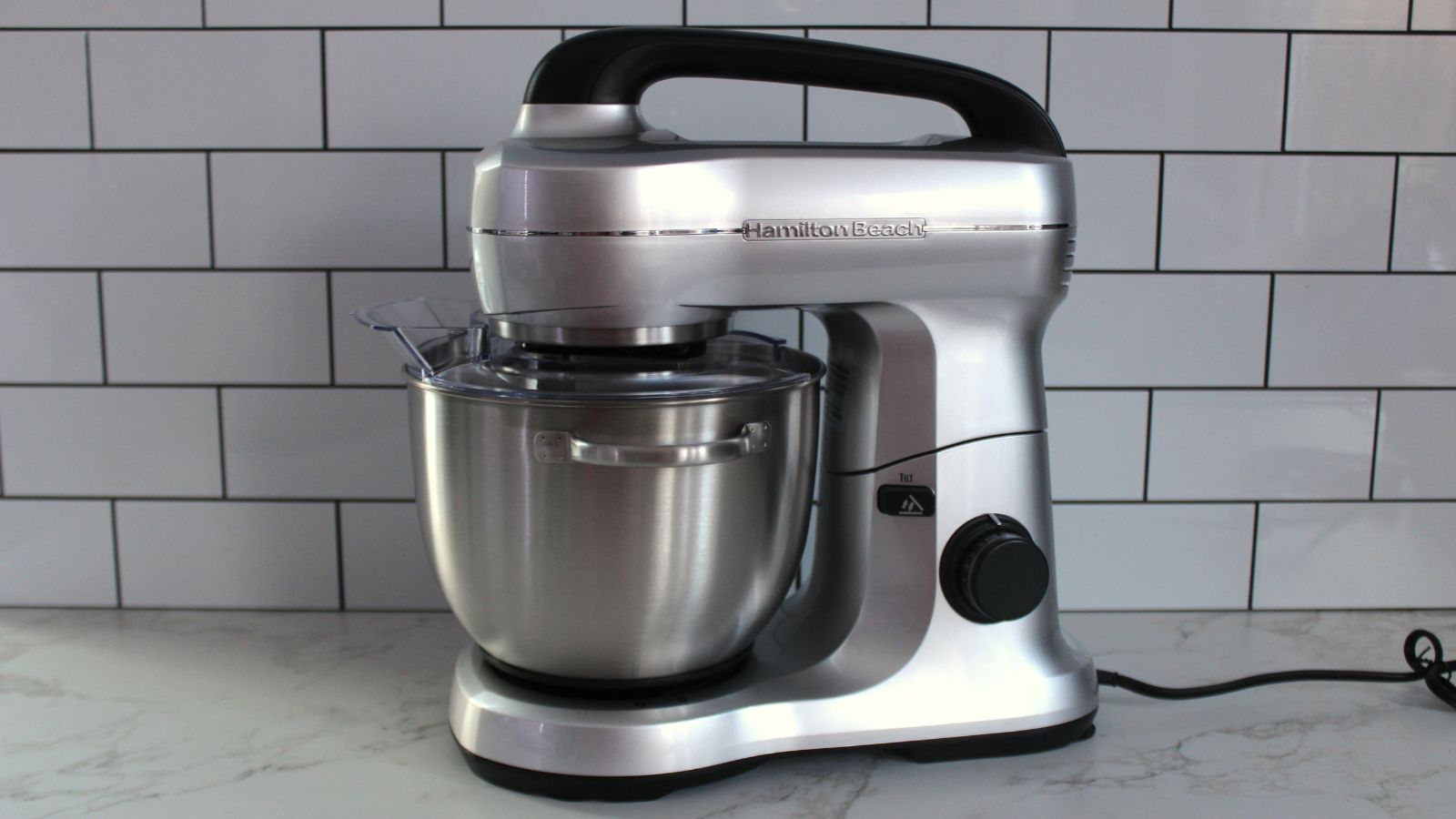
The Hamilton Beach Electric Stand Mixer is an inexpensive option for casual bakers. It can handle most basic tasks, such as mixing batter and whipping egg whites, but its low-powered design does struggle with thicker batters. Still, the mixer has a convenient compact design that’s lightweight and easy to move thanks to the integrated handle, and overall, it's a decent option for light-duty baking tasks.
-
+
Inexpensive
-
+
Compact and lightweight
-
+
Variable speed control
-
+
Includes bowl shield
-
+
Handle for carrying
-
+
Easy to clean
-
-
Doesn’t scrape the sides of the bowl well
-
-
Struggles with thick ingredients
You can trust Homes & Gardens.

A good stand mixer makes it easy to whip up all sorts of batters and dough, but they’re often a substantial investment, costing upward of $300. If you’re looking for something that won’t put such a dent in your wallet, the Hamilton Beach Electric Stand Mixer is a highly rated option that costs just $120. But does it work?
This electric stand mixer has a 4-quart capacity, and it comes with all the accessories you’d expect, including paddle, whisk, and dough attachments – there’s even a bowl shield to keep ingredients from splashing out as you stir. Plus, the brand claims that the beater uses the same action as the beloved KitchenAid for more even hands-free mixing. It all sounds great, but we wanted to see if this budget-friendly option can really compete with more expensive appliances.
I tested the Hamilton Beach Stand Mixer over the course of a week, using all its different attachments to make a variety of baked goods. Here’s what I liked about this inexpensive mixer, as well as the issue that keep it from being one of the best stand mixers
Product specifications
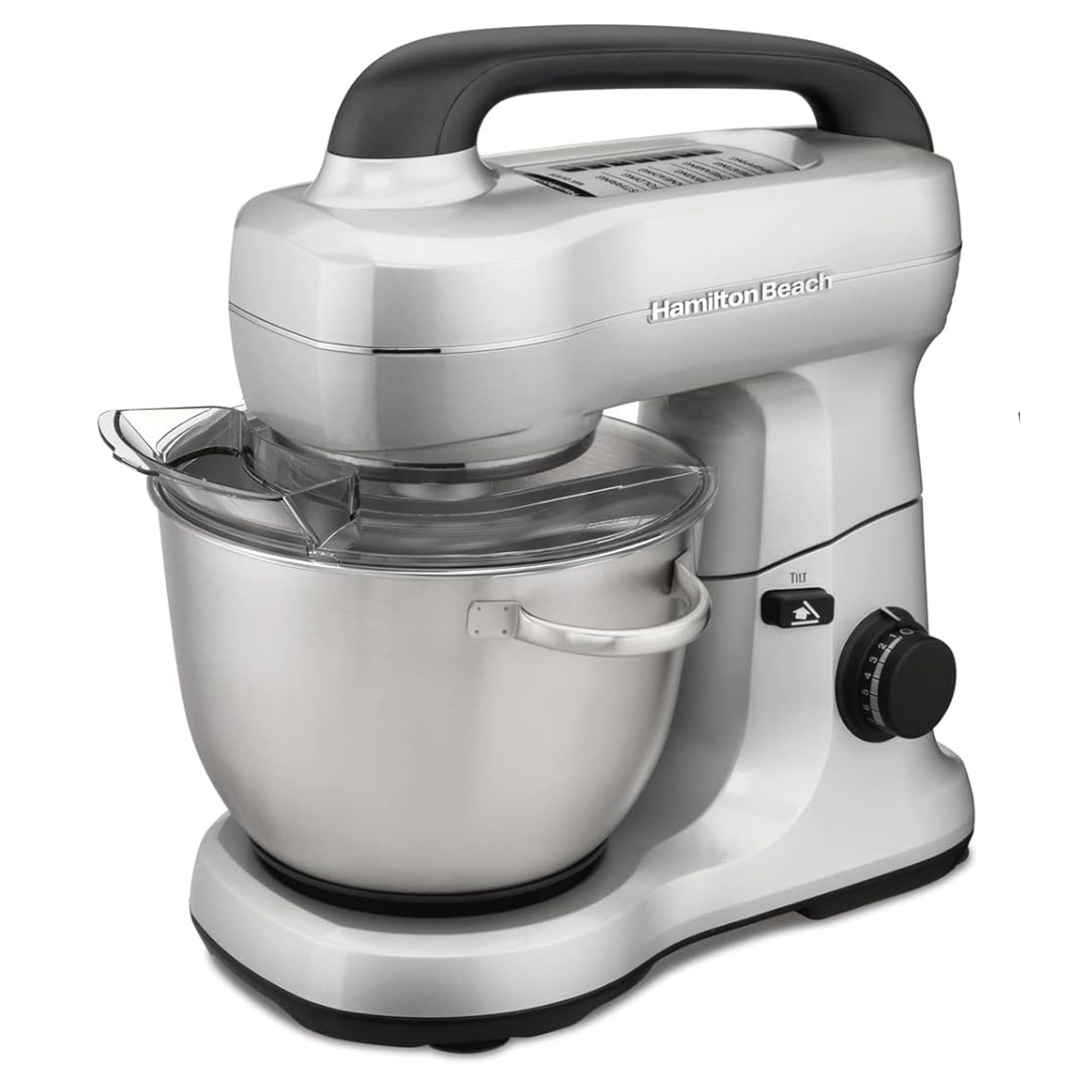
| Dimensions: | 14.5 H x 14.4 W x 10.9 D inches |
| Weight: | 9.37 pounds |
| Capacity: | 4 quarts |
| Speeds: | 7 |
| Wattage | 300 watts |
| Accessories | Dough hook, whisk, flat beater, bowl shield Warranty: |
Unboxing and set-up
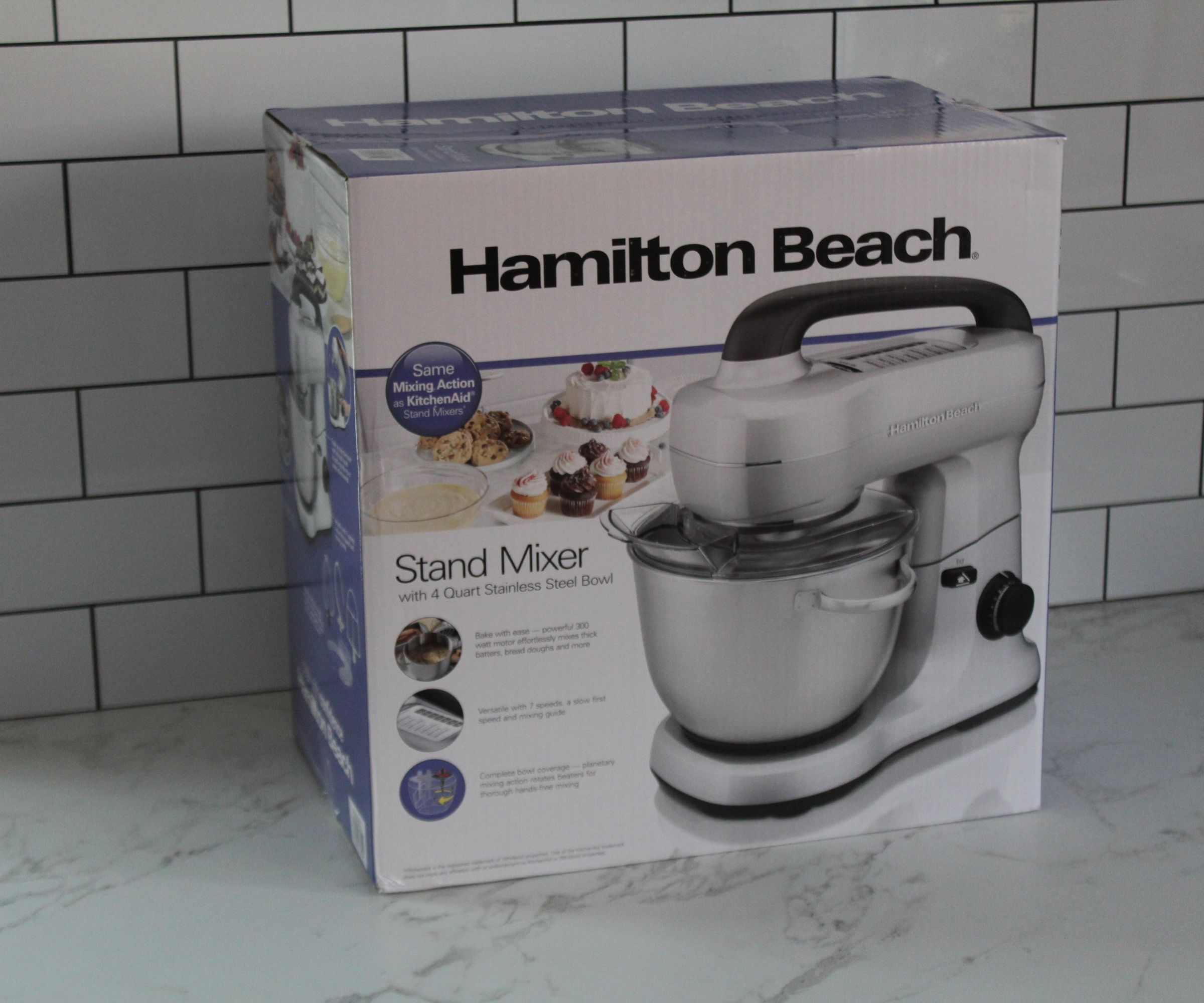
The Hamilton Beach Stand Mixer arrived packaged in a few pieces of molded cardboard, and it was wrapped in a layer of plastic to protect it during shipping. All the accessories were individual plastic bags. In addition to the mixer itself, the box contained three basic attachments – a paddle, whisk, and dough hook – as well as a plastic bowl shield.
The stand mixer has a silver finish (it does come in several other hues, as well), but the exterior is just plastic – not stainless steel. There’s a dial-style control knob on the right side of the machine that lets you turn it on and off, and unlike most mixers, the speed levels aren’t fixed. Instead, it’s a variable-style knob that lets you set the speed in between settings, if needed. Next to the control knob, there’s a button that unlocks the mixer’s head, allowing you to tilt it up and down. The head locks in the up position, so you have to unlock it again before putting it back down. It's a good safety feature that keeps the mixer from slamming onto your hands, but it's a little frustrating to use.
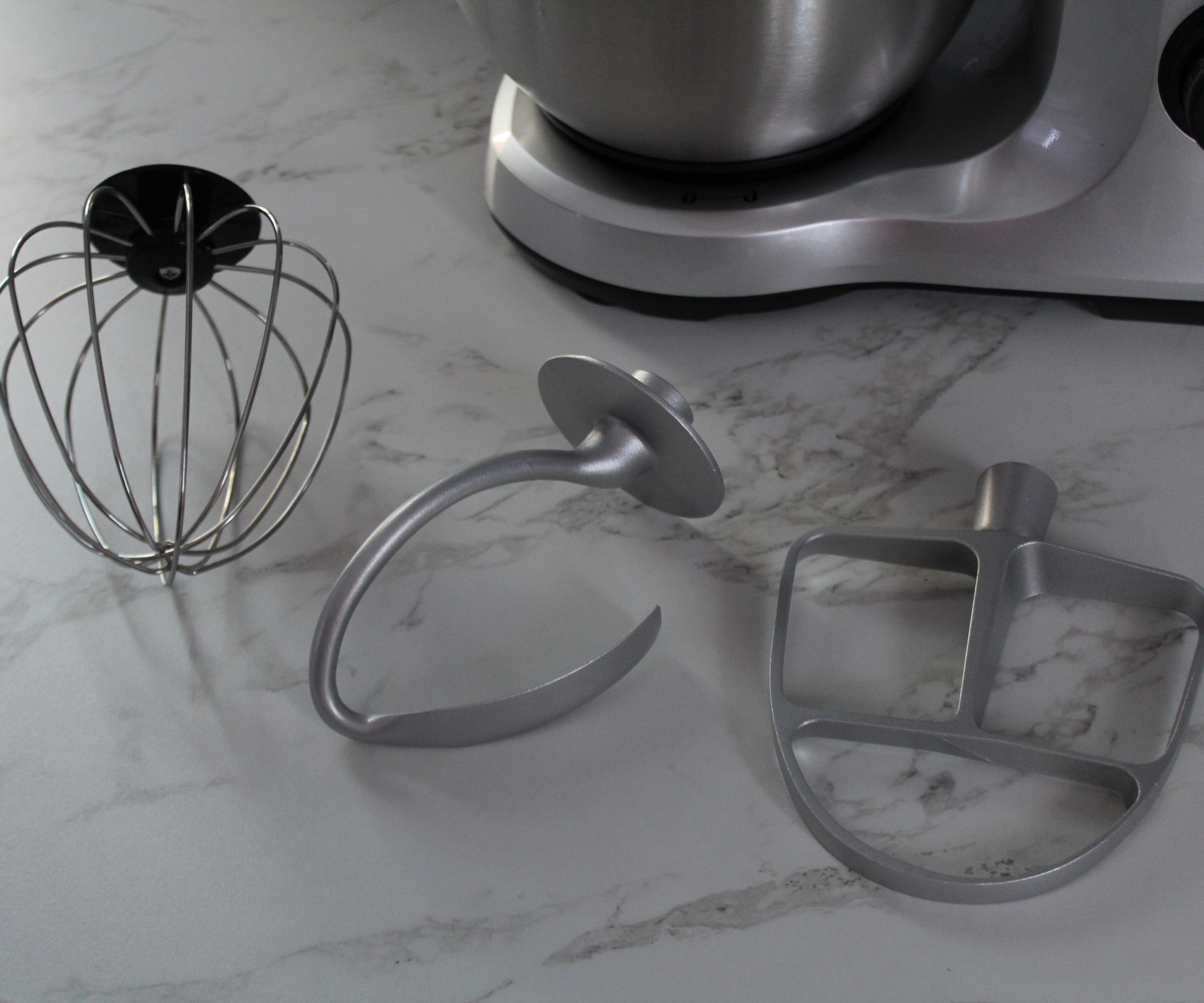
The mixer has a 4-quart stainless steel bowl with two handles on each side, and you just twist it to lock it into place on the base of the mixer. There’s a big handle on top of the mixer, as well, which actually proved to be really handy when moving the appliance around my kitchen. Underneath the handle, there’s also a mixing guide that explains the different speed levels, and I can see this being useful for new bakers who need a little extra guidance.
Who would it suit?
The Hamilton Beach Electric Stand Mixer is well-suited for beginners or more casual bakers. It will come in handy for light-duty tasks like baking cookies or cake, and it also did a good job whipping up egg whites and kneading bread dough. This appliance is also a good option for anyone who doesn’t want to keep a stand mixer on their counter all the time, as it’s very lightweight and easy to move around thanks to the large handle on top.
Design expertise in your inbox – from inspiring decorating ideas and beautiful celebrity homes to practical gardening advice and shopping round-ups.
However, if you’re a serious baker, this stand mixer isn’t powerful enough to tackle more complex tasks. It struggles to cream butter and mix thick batters, and it tends to wobble quite a bit when stirring at high speeds.
Test 1: Lemon Bundt cake
Soon after I received this mixer I had a family dinner to attend, so I decided it was the perfect opportunity to whip up a special cake. I decided on one of my go-to recipes for a lemon Bundt cake – it’s easy to make, but looks impressive.

The first step in this recipe is to cream together butter and sugar. I made the mistake of tossing whole sticks of butter into the bowl instead of cutting it into pieces, and the mixer had a hard time squishing down the sticks, even though they were room temperature. I actually had to hold the mixer down because it was jolting all over the counter.
Once the butter was mashed up, the mixer was able to mix it with the sugar, but I had to stop regularly to scrape the mixture off the sides of the bowl. (This is an issue I’ve run into with a lot of cheaper stand mixers.) Overall, it didn’t do a great job creaming the ingredients, because it just kept pushing them to the sides of the bowl out of reach of the paddle.
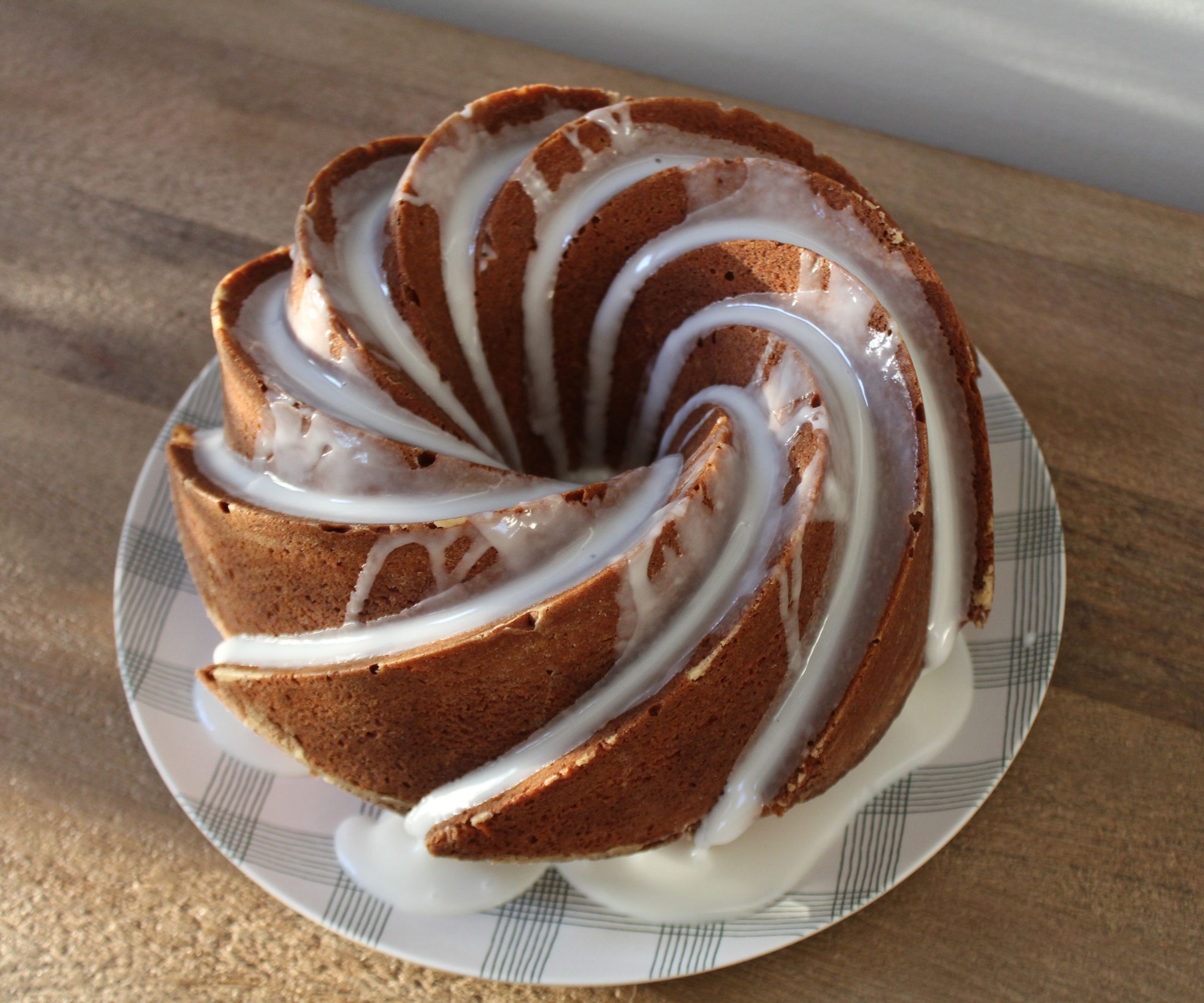
I decided to just move on with the recipe, and the mixer performed much better once the liquid ingredients were added. It did start to struggle again when I added in the flour – the head of the mixer was wobbling as it stirred because the batter was so thick. The good news is that the cake came out absolutely delicious, despite the hiccups along the way.
Test 2: Cinnamon crunch bread
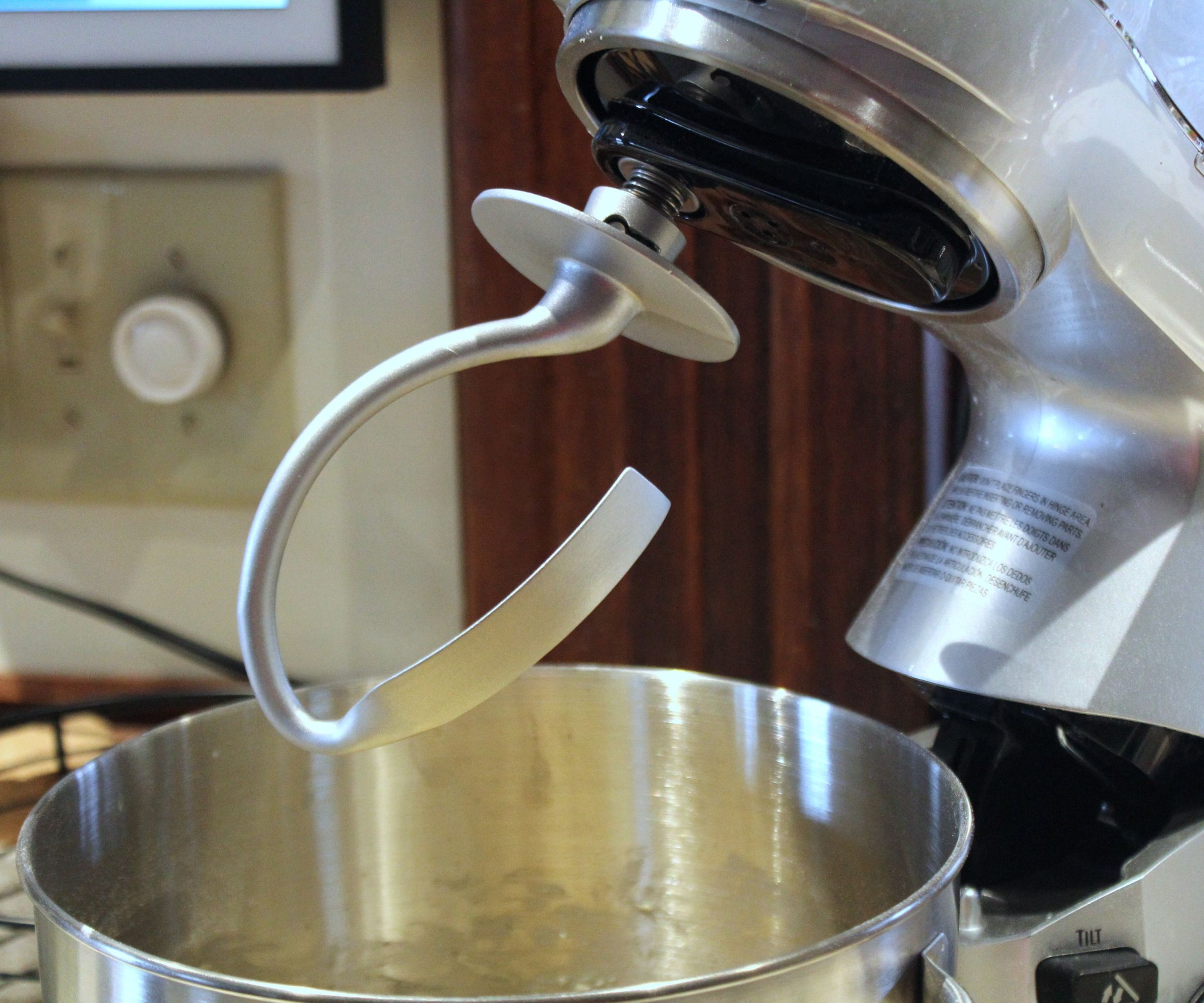
The dough hook that came with the Hamilton Beach Mixer has a different shape than ones I’ve used in the past. The hook is quite narrow, and I was curious to see how it would perform kneading dough. I decided to make a loaf of cinnamon crunch bread, one of my favorite breakfast treats.
I started with the paddle attachment to mix all the ingredients together, then I switched to the dough hook for five minutes of kneading. Instead of grabbing the dough like other hooks I’ve used, this attachment seems to knead just by pressing the dough against the sides of the bowl. It seemed to be working pretty well, and after five minutes at a medium speed, the ball was much smoother than when it started.
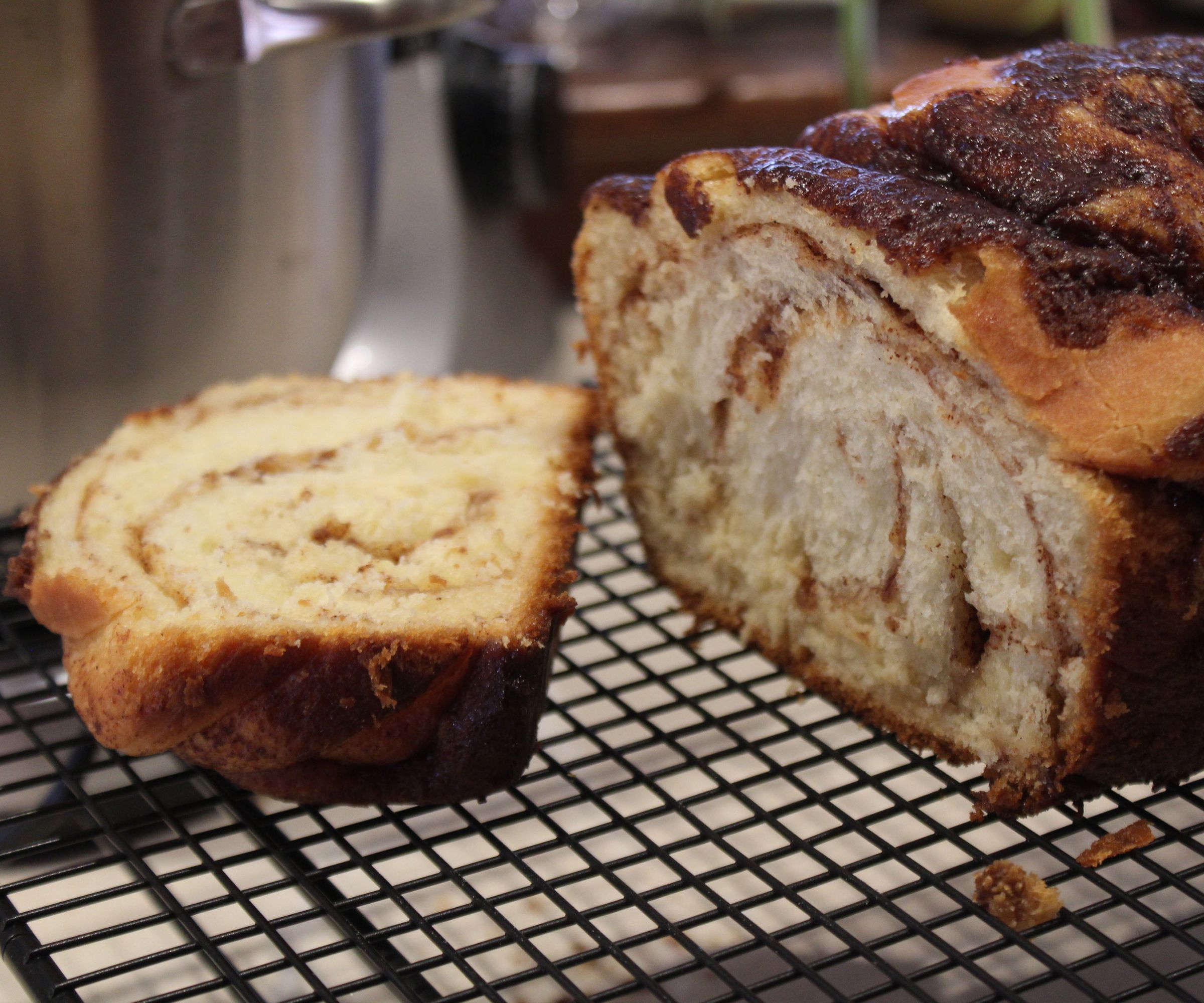
At this stage, I left the dough to rise for a few hours, and I was slightly concerned because it didn’t really double in size. However, I decided to just trust the process, and I’m glad I did. The bread came out so good, and it was definitely kneaded enough, as the loaf had a beautiful texture.
Test 3: Peanut butter meringue cookies
To try out the mixer’s whipping abilities, I settled on a recipe for peanut butter meringue cookies. Meringue is just egg whites and sugar whipped at a high speed, which creates a light and fluffy batter.
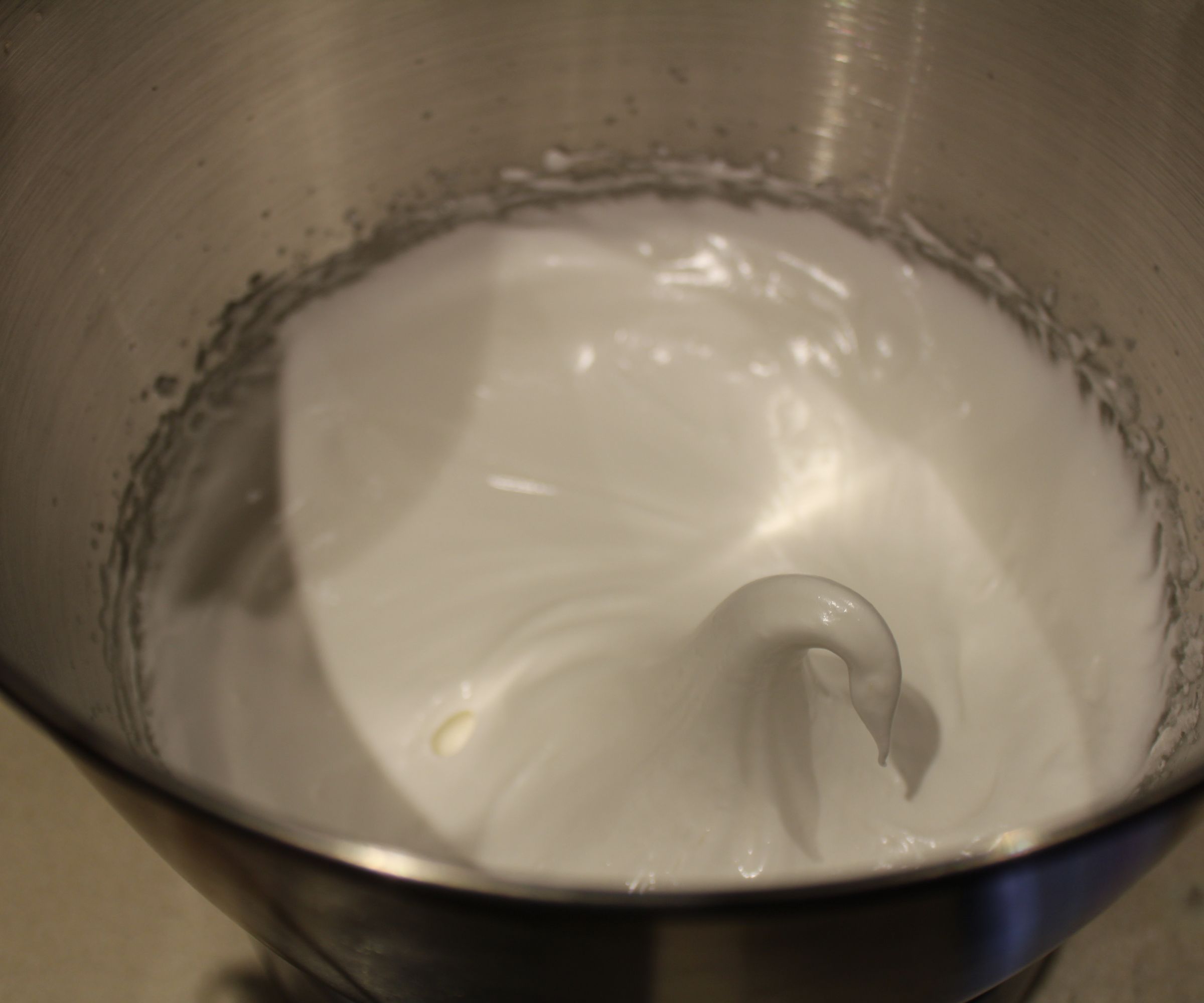
To make this recipe, I used the stand mixer’s whisk attachment. I beat the egg whites and sugar at the mixer’s highest speed for around four or five minutes, at which point stiff peaks began to form. The mixer didn’t wobble around at all because the batter is thin, but I did notice that the batter around the sides of the bowl wasn’t whipped as well as the batter in the center.
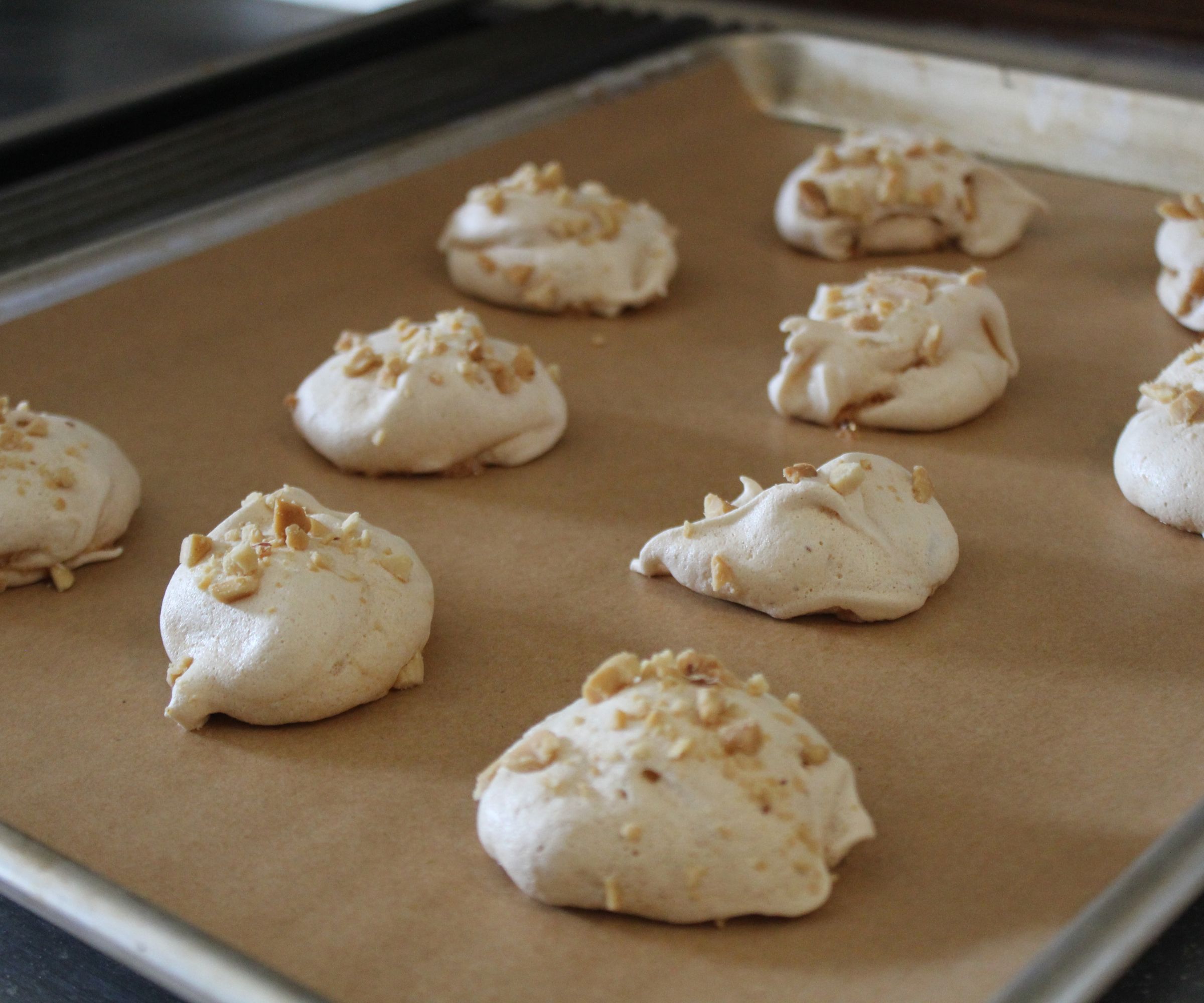
I swirled some peanut butter through the batter, but in doing so, I think I knocked too much air out of it. Some of the cookies came out with the right texture, but others collapsed during baking and were hollow inside. Still, I was impressed with the mixer’s whipping abilities. It was able to create meringue quickly, but next time I’ll stop to scrape the sides of the bowl down a few times along the way.
Cleaning and maintenance
One of the nice things about this stand mixer is that all of its removable components are dishwasher-safe. All three of the attachments can be cleaned in the dishwasher, along with the bowl shield and bowl itself. I put them through a regular wash cycle multiple times, and they came out looking as good as new.
The only thing I noticed is that sometimes water gets trapped in the base of the bowl, and you can hear it sloshing around after you take it out of the dishwasher. In these cases, I generally just left the bowl tilted on a hand towel for a few hours so the water drained out.
How does it rate online?
The Hamilton Beach Electric Stand Mixer has more than 9,400 reviews on Amazon with an average rating of 4.5 stars. Many reviewers like that the appliance is lightweight, affordable, and easy to move around, and most agree that it’s great for small tasks like making cookies. However, a large number of people have experienced wobbling at high speeds or when working with a thicker batter.
How does it compare?
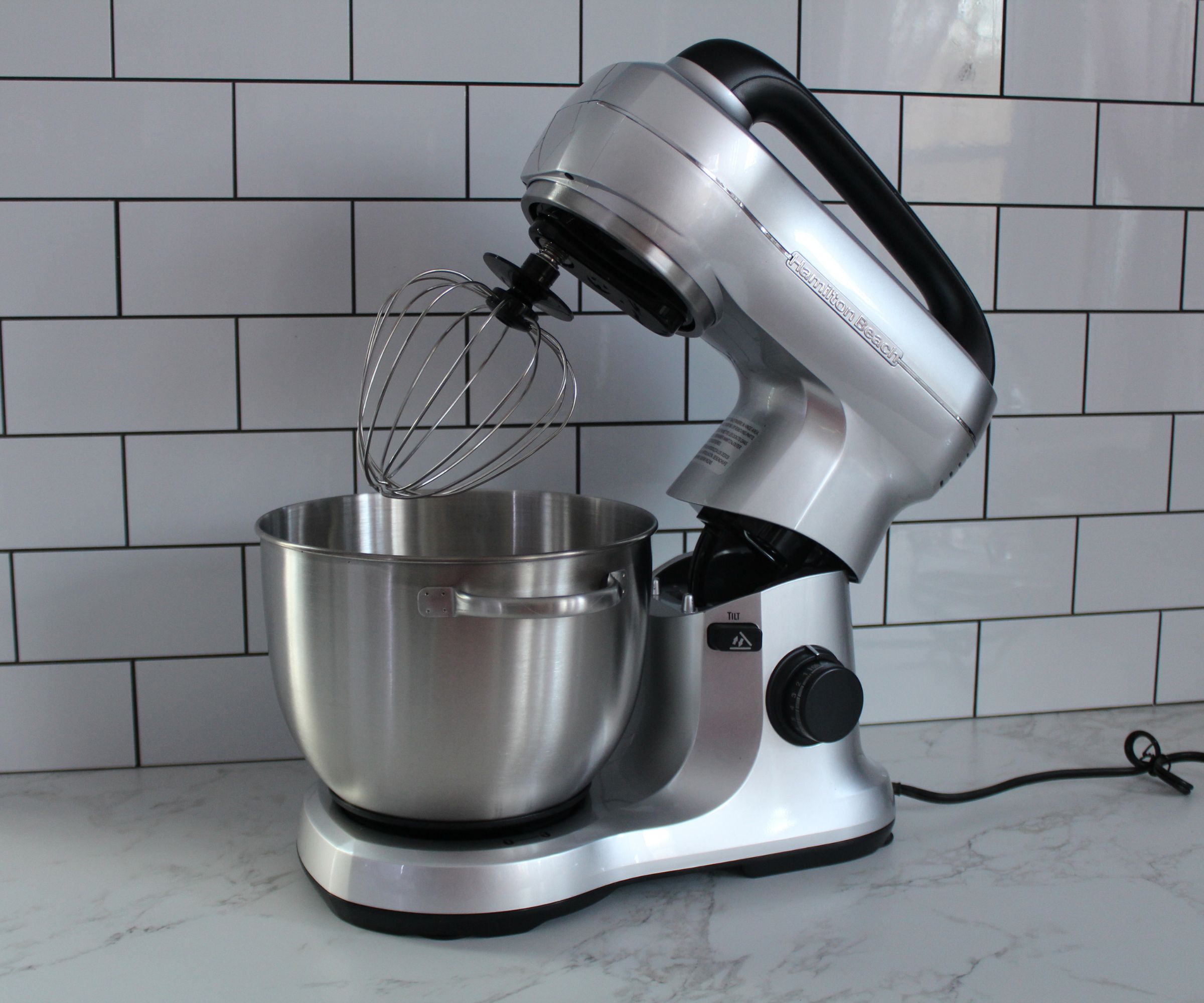
If you bake regularly or want to tackle more heavy-duty tasks, it’s worth upgrading to a KitchenAid stand mixer. These appliances are the current gold standard for stand mixers, as they’re incredibly sturdy, powerful, and versatile. Our top pick for most people is the KitchenAid Artisan Series 5-Qt. Stand Mixer, which can handle virtually any baking task. However, it’s much bigger, heavier, and more expensive than the Hamilton Beach model, retailing for around $450 at full price.
Another budget-friendly option that we recommend is the Beautiful Stand Mixer. It’s similar in price, costing around $100, but it’s a bit sturdier than the Hamilton Beach and has a stylish design with a matte finish and gold accents. It also offers a total of 12 speeds and includes a bowl shield that attaches to the head of the mixer—not the bowl—making it more convenient to use.
Should you buy the Hamilton Beach Electric Stand Mixer?
The Hamilton Beach Electric Stand Mixer is a decent choice if you only bake once in a while and are looking for a budget-friendly appliance. During testing, it did well with light-duty tasks like mixing cake batter, but it does struggle with more complicated jobs like creaming butter or stirring thick dough. However, we do love that it’s lightweight and compact, making it easy to move in and out of storage, and overall, it’s a decent option for your kitchen if you want to stay in the $100 price range.
How we test stand mixers
We always test stand mixers on three different tasks; mixing, kneading dough, and whisking. The first test lets us assess how well a mixer can combine ingredients, and whether or not your need to scrape down the bowl. The second test on dough hooks helps us to see how well the mixer can knead heavy doughs, and if it sits securely on a countertop as it mixes. The final test means that we can see how the stand mixers copes with lighter ingredients like cream and egg whites.

Camryn Rabideau is a writer and product reviewer specializing in home, kitchen, and pet products. In her five years as a product tester, she's tested hundreds of items first-hand, including many, many kitchen appliances for Homes & Gardens. Camryn does her product testing from her small homestead in beautiful Rhode Island.